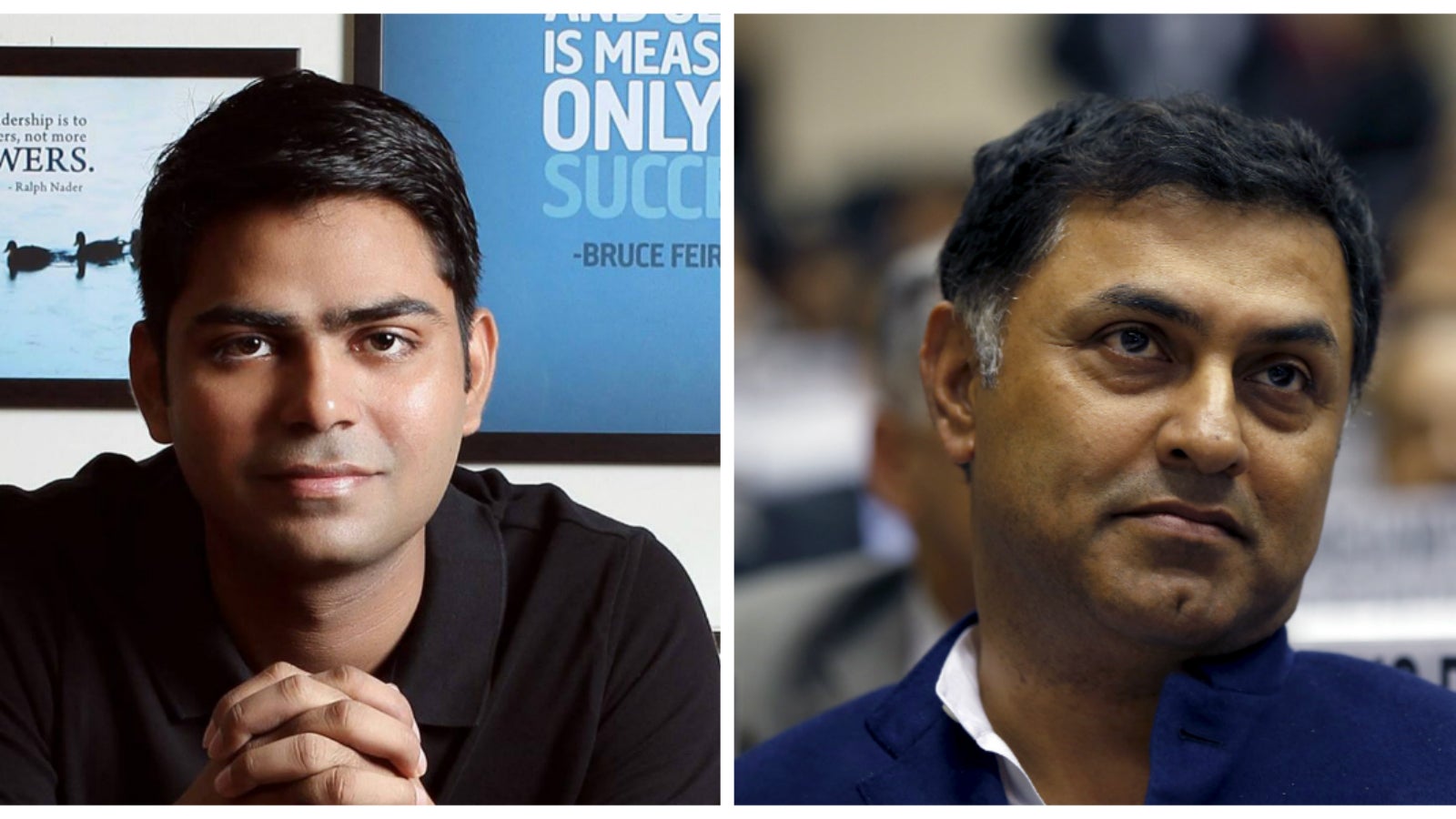Rahul Yadav on Nikesh Arora’s exit: Karma is a bitch
Rahul Yadav knows a thing or two about abrupt exits.


Rahul Yadav knows a thing or two about abrupt exits.
Almost a year ago, the 26-year-old was booted from Housing.com, the company he founded in 2012. One of the investors responsible for his dismissal was Nikesh Arora, president and chief operating officer of SoftBank, which had a 38% stake in Housing.com.
In a surprise announcement yesterday (June 21), Arora, one of the world’s highest-paid professionals, said he will be leaving SoftBank. The official reason cited is a disagreement over the timing of a leadership transfer at the Japanese multinational, but there is presumably more than meets the eye.
Yadav, though, is an unabashed admirer of Arora.
“I have always liked him. He is very positive,” Yadav told Quartz. “But karma is a bitch.”
The karma that Yadav is referring to relates to his unceremonious removal from Housing.com as CEO. Last July, SoftBank, the largest shareholder in Housing.com, and other investors decided they had enough of Yadav’s brash and impulsive behaviour that often led to numerous scuffles with investors and media.
Obviously, the reasons for Arora’s exit are very different, but Yadav reckons it will feel a lot like when he was asked to leave Housing.com.
“Now he will know what it feels like,” he added. “He has also put a lot of his personal savings into SoftBank. And now to leave it all, will be painful.” Arora had invested $484 million of his own savings in SoftBank. He has reportedly sold his SoftBank shares after his exit.
SoftBank maintains that Arora’s departure was a result of differences with company chairman Masayoshi Son over when to hand over the reins. “Son’s intention was to keep leading the Group in various aspects for the time being, while Arora wished to start taking over the lead in a few years’ time,” SoftBank said in a statement (pdf).
Yadav doesn’t believe that.
“I don’t think his leaving has anything to do with the transition,” he explained. “His investments in India haven’t clearly worked.” Arora is credited with investing more than $2 billion in India across the startup sector, but there have been doubts over exactly how successful these have been. Earlier this year, unnamed investors at SoftBank also attacked Arora, alleging that his investments haven’t really performed and that there was a conflict of interest.
But, Arora was finally cleared by a company-appointed committee on June 19.
“Unlike many other companies, SoftBank was pumping in a lot of money into the startup space,” said Yadav. “SoftBank was paying two or three times the mark-up when other investors were only giving 30% or 50% of the mark-up. India is a slow country and you need to be patient. But they were just burning money too fast.” Mark-up essentially means the valuation of a company and SoftBank was simply valuing the company at much more than expected.
But Yadav argues that the fault isn’t Arora’s alone. “Masayoshi also has a habit of being very aggressive,” he said. ”Arora simply followed that aggressive nature. But he could have handled these investments much better.”
SoftBank declined to comment on Yadav’s remarks. “We will not comment on someone else’s views,” a spokesperson for SoftBank said. “Rahul’s pov (point of view) is his own.”